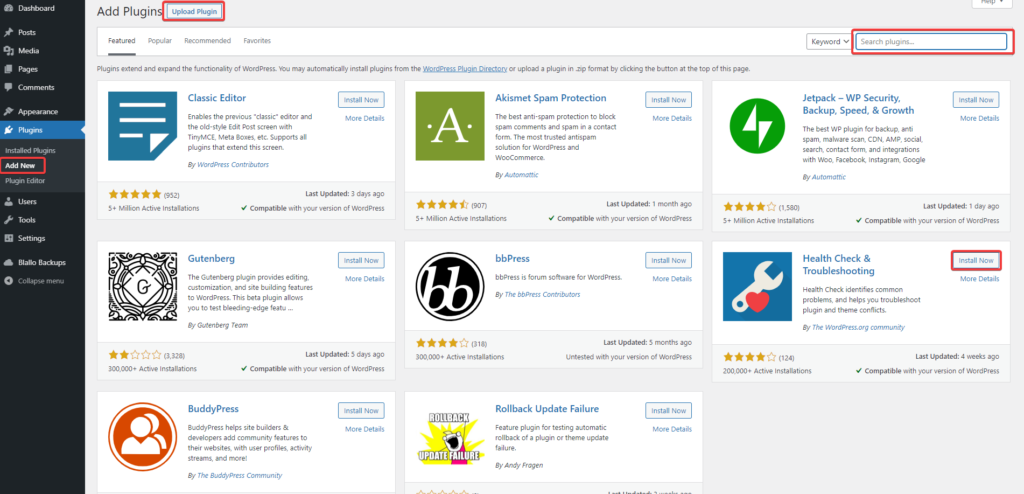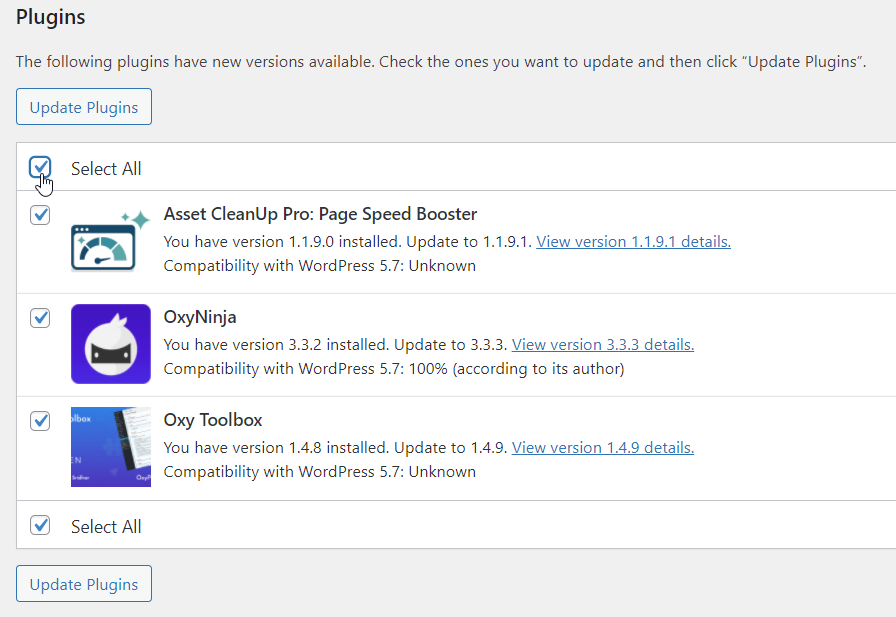WordPress has a very robust and wide plugin ecosystem, offering solutions to most problems.
WordPress plugins are written by third party developers, and they can be free or paid. The majority of the time you will find that a plugin is offered for both options so it’s up to your preference which one suits best what needs, budget or specific features you need.
Having a basic understanding of plugins is essential, so we’ve prepared this article to get you up to speed.
WordPress Plugins: What are they?
Plugins are a way to extend the functionality of WordPress. They can be used for anything from adding social media buttons on your website, or creating contact forms and newsletters that integrate with Mailchimp (a popular email marketing service). Plugins allow you not only customize how things work but also add new features like an eCommerce store in minutes! The possibilities really do seem endless when it comes down plugins: they’re one tool no site should go without because there’s always something out there, waiting just around the corner ready to make life easier, and your website better.
Three reasons why people might want to install WordPress Plugins
If Plugins are so important, why are they not part of WordPress? Why should we install them?
Plugins are not part of WordPress because they’re created by third-party developers, and they respond to specific needs: if everything was part of WordPress Core Functionality, it would be bloated, slow and very difficult to manage.
Instead, as a plugin, we can add any additional functionality we need, only when we need it, without extra code that we don’t need and only adds bulk and bloat.
1. We Need a New Feature
If we need a specific feature, we can code it ourselves or look for a plugin: either way, we will add something new to WordPress that does something we need. No matter how small or big it is, it can be something simple such as a contact form, or something more complex, like an e-commerce.
2. We Want to Improve our WordPress Performance
We don’t just add new features to our website, we also want to improve how fast it is and make our visitor’s experience as smooth as possible: there are specific plugins that can increase our website’s loading speed by a lot, which paired with other optimization techniques and technologies such as our hosting provider and CDN, contribute towards performance optimization.
3. We Want to Improve our Security
We also want a website that is as secure and safe from hackers, malware or other security threats. There are plugins for this too: they can help us with password protection (or even two-factor authentication), block malicious scripts such like those used in XSS attacks on WordPress websites. Security isn’t “solved” by plugins, but certain plugins are important to help make our WordPress website more secure.
What can WordPress Plugins do?
WordPress plugins can do pretty much anything. Some go as far as have their own interface that interacts with WordPress data to create brand new features, such as CRMs or Project Management software.
It might sound hard to believe, but there are WordPress plugins that create those functionalities!
The sky is the limit for what WordPress plugins can do. They are a great way to extend your website’s functionality, and plenty of them are also free!
What should I look for when installing new Plugins?
There might be some security risks that come with plugins: as WordPress gets updated with new versions, plugins have to keep up with changes. Outdated plugins could have security vulnerabilities and at times could also stop working, sometimes with breaking changes to your website.
You have to also factor in how well made the plugin is: poorly coded plugins can create issues for your whole website.
- Read reviews
- Check out star ratings in the WordPress plugin directory
- Make sure it hasn’t been last updated a long time ago
Over time, make sure plugins are updated and find a substitute to those that become abandoned.
Plugins can be great, but not all plugins are great.
How to Add WordPress Plugins to Your Website
Adding a WordPress plugin is quite easy! In fact, the official WordPress.org repository is directly connected within our WordPress Installation. All we have to do is click Plugins > Add New, and we can browse thousands of free plugins in the Plugin Directory.
There are other ways to install a plugin:
- by going to Plugins > Add New, we can choose to upload our plugin.
This is most often done for Premium Plugins, as they are not within the WordPress Plugin Directory. - by uploading the plugin directory into the wp-content/plugins folder. This is less frequently used.

Once the plugin is installed, all we have to do is press “Activate”.
How to Update WordPress Plugins
Updating a plugin is very easy! Whether it’s a Free or Paid plugin, it usually will notice you there are updates and once you go to the update screen, you can choose which plugins to update. Look for this symbol at the top left of the WordPress Admin Bar: ![]()
Once you click, you get into the Dashboard > Updates page, and you just have to select which plugins or themes to update, wait for the window to reload and tell you that the update process is complete, and that’s it, you’re done updating.

After it’s done, check that your website is still working correctly: some plugin updates can cause a few issues at times. While rare, it’s a good practice to make sure that everything works correctly.
The difference Between Paid and Free WordPress Plugins
Some of those plugins have a premium version with more features, so depending on what we need we might want to purchase a plugin.
Some plugins, instead, do not have a free version at all, as is the case for the most complex ones and only come in a paid version.
There are however a lot of free plugins that can make our WordPress website much better, so we do not necessarily need many paid plugins. It is very important to understand the differences and consider what works best for us.
A premium WordPress Plugin is one that has been developed by an individual or company, and they are charging for it, usually through their own website (usually with PayPal). Some plugins have a yearly cost, others instead have to be purchased only once.
Keep in mind that we expect a plugin we pay for to be updated for future versions of WordPress, and depending on the complexity of the plugin, there might be ongoing costs for the developer, so some of them can be quite pricey, but they can also make a big difference in our website.
How to Remove or Deactivate WordPress Plugins
Uninstalling a plugin is quite easy. It is suggested to use the wp-admin interface, and to select to remove the plugin’s settings if possible, so that it can clean up the database as well.
Plugins have to first be deactivated, only then it is possible to uninstall them.

In order to deactivate and then remove plugins, you can use the same technique as for themes: open your wp-admin interface, select Appearance > Themes or Plugins (depending on which one you want to manage) and look at all plugins. You will see that some of them are active while others inactive; just deactivate and then uninstall them from there.
How WordPress Plugins Can Affect the Website Performance
As the scope of plugins can vary, their code ranges from simple to unique and complex, meaning plugins can affect performance.
Quality plugins make the difference in the end.
Plugins are built using different technologies, so there might be conflicts with other plugins or a website theme if not coded carefully and professionally.
Some plugins for example add contact forms, but they add their javascript and css to each and every WordPress page, even if there is not a form; that makes your website slower: think if many plugins do the same, all your pages will become slow and bloated.
Some other plugins could have errors or not be compatible with other common plugins; they could have non-patched vulnerabilities!
Now, no need to worry: Many plugins are safe, but it is worth exploring them before installing. We don’t want to build a WordPress monster with 101 suboptimal plugins. That wouldn’t be fun for anyone!
How many Plugins Should you Install?
Quantity is not so much the issue: quality is very important. If your use case is very complex you might need a lot of custom-code or many plugins, but if they are all well made your website can still be fast, optimized and well performing.
If you are just getting started with WordPress, I recommend to install only the necessary plugins and add more as your needs grow. For example: if this is a blog that has no ecommerce or social media integration it doesn’t need any plugin like WooCommerce for selling products online yet.
Remember: You can add plugins anytime you wish! So only install those that make sense at the time.
Where can I get WordPress Plugins?
You can get free WordPress plugins directly from your WordPress installation, as it shows all the plugins within the Plugin Directory. As for Premium plugins, they’re linked within their free version, if available, or you can directly go to the plugin developer’s website if you want something specifically.

We suggest vetting plugins carefully, as they can make or break your website, both in a positive and negative way. Do not install anything without knowing what it does, reading reviews and asking questions.
Some plugins are only beneficial for blogs that have heavy content management needs or specific functionality requirements (i..e WooCommerce). So make sure to install the right plugin from your WordPress installation first before going elsewhere.
What Types of WordPress Plugins are There?
There are many kinds of WordPress Plugins, but there are some more widely used than others. Let’s briefly explore some popular categories. In-depth articles will follow with Plugin Recommendations from our experience.
Security
Security Plugins are important to enhance the security of your website. While it is very important to approach security at a server level, antispam, two-factor authentication and login protection such as fail2ban via WordPress go a long way in securing your WordPress website.
Backup
Like Security, Backups should not be only at a WordPress level; there should be multiple backup layers, and one can and should be within WordPress: there are many backup plugins, both free and paid, that can backup your website to Cloud services such as Dropbox, OneDrive or Google Drive, Amazon S3 and S3-compatible buckets and more, with database backups and often times also incremental backups.
Website Optimization
Our visitors want our websites to be bast; Google wants our websites to be fast. It goes without saying that we then want our websites to be as fast as possible. WordPress Plugins for optimization come in many shapes and forms: DB Optimization, Speed Optimization, etc and they often interact with our server stack and its caching technologies.
Caching
Caching is part of the Website Optimization Vertical: caching plugins help us make our website faster by storing static content from our website in their cache. Static Content includes images, fonts and JavaScript files to name but a few
Database Optimization
We often face the issue of WordPress being too slow due to a database full of bloat and data that should be removed. It happens the most with very big websites or websites that have been around for years.
Image Optimization
Just like the rest of our website, we want our images to be optimized. Having an 8K Image in every page of our WordPress website might look crisp, but it will certainly impact in the website speed and load time: many users are mobile and the average load speed is very low. As a result, images should be optimized by reducing their size.
Sometimes, the images are not compressed enough for WordPress to store them efficiently and as a result they take up more space than necessary in our web pages which can lead into slow load times. This can be improved with Image Optimization plugins, whose job is to make our image as small as possible, while maintaining their quality as much as possible. Settings can usually be changed so we can keep lossless quality, or perhaps decide that a slight quality loss is worth the gain. At any rate, they’re an important part of the optimization game.
Contact Forms
Contact Forms and Forms in general are extremely important in most WordPress websites. They can be used to acquire leads, potential customers, or to simply increase our viewership.
These plugins allow us to create forms that are used for contact submissions or surveys of any kind. They can also be integrated with email marketing platforms for newsletters and email marketing.
Whether we want to be contacted directly or we just want our viewers to know our news and articles, we want a contact form.
Booking
Booking plugins are very useful in allowing our visitors to book a meeting with us, or in securing a session at any professional activity.
There are a lot of options to choose from, but the booking plugins can be very important and useful in our websites’ management if we want them implemented correctly into every aspect possible so that users have an easier to handle their reservations/bookings with our business, directly from the website.
Analytics
Without data we cannot really know how our website is doing.
Analytics plugins are tools that give us a lot of information about our website, and this can help to make decisions on how we want the site developed.
An example would be Google Analytics – it’s a free analytics by Google that can easily be installed in WordPress sites which gives you data like visitors from where they come in (country), what timezone is set up by default and much more.
We can also set-up goals such as website purchase or newsletter join, so that we can understand our most popular channels and referrals.
SEO Plugins
Most of the times we want our websites to be present in search engines, as that is one of the best ways to get visits. WordPress SEO (Search Engine Optimization) Plugins are part of what helps us get in the first position in the Search Engine Rankings.
It is important to note that this is not all you need to get in the first position of search engines, however! SEO is not just a plugin, but a good SEO plugin does help add a few very important things to make our content Search Engine Friendly, such as schema and meta.
Pop-up Plugins
This is definitely marketing territory, but pop-up plugins have many uses and they’re not just the annoying pop-ups we often get. There are useful ones that can be implemented, useful to collect emails or talk about a new product.
Multi-Language
That’s right! We can have our WordPress website in many different languages! Language switcher, automatic language detection and also automatic translation are just part of the features we can have with specific plugins that help our website speak many languages.
Page Builders
If we want our website to differ in design, we can:
- install a specific theme
- manually code a theme
- use a page builder. Page builders give us a blank page and we can design it to our liking.
This is a very important step, as this will mean the difference between having just an average website with decent content or one that really stands out!
There are many page builders in the market nowadays, each with their pros and cons. WordPress itself comes with a built-in page builder: Gutenberg.
It started in version 5.0 with a few blocks, but in a few short years it has become very capable and it is rapidly improving.
Third-parties page builders come in many shapes and sizes with different price points.
We will talk about the most popular ones in another article.
Some are beginner’s friendly but have a very bloated output code, whereas others are more difficult to use but in contrast offer better performance. Just like any other plugin, a bit of research goes a long way in finding what works best for us.
In Conclusion
This is it for now! As you can see, we could speak forever about plugins, and as you get to know more about WordPress, we’ll explore those plugin types and more, to offer some guidance in choosing what works best depending on one’s needs.
Let us know if you’d like us to explore a specific category, we’d be happy to look into it.


